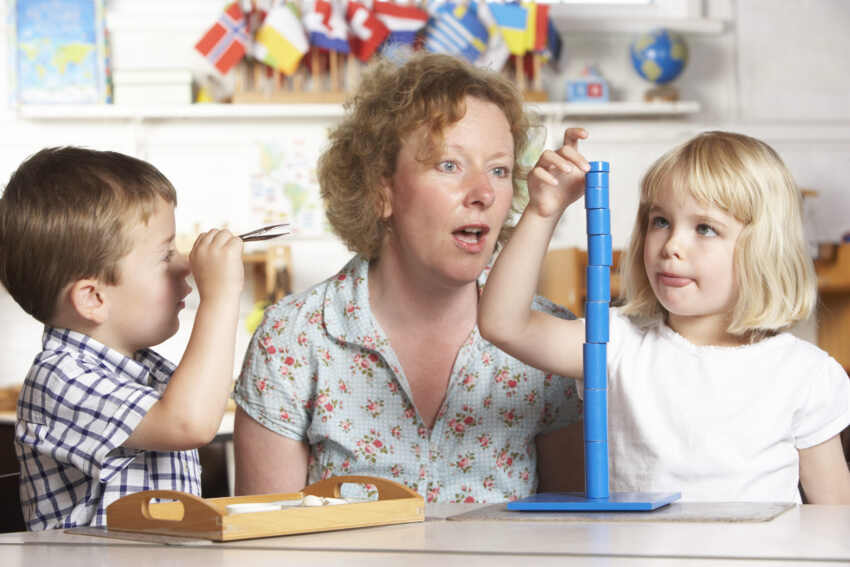Exploring Montessori Measurement Materials:In the Montessori approach to education, hands-on learning plays a vital role in helping children develop a deep understanding of various concepts. When it comes to teaching measurement, Montessori materials are especially effective in engaging children and fostering their conceptual understanding
In the Montessori approach to education, hands-on learning plays a vital role in helping children develop a deep understanding of various concepts. When it comes to teaching measurement, Montessori materials are especially effective in engaging children and fostering their conceptual understanding. In this article, we will explore some of the key Montessori measurement materials and discuss how they can be used to enhance hands-on learning experiences.
1. The Long Red Rods: Developing spatial and length awareness
The Long Red Rods are among the foundational Montessori materials for measurement. These rods come in a set of ten, each varying in length by 10 centimeters. By manipulating and comparing the rods, children develop spatial and length awareness. They learn to differentiate between long and short, and through the direct manipulation of the rods, they internalize the concept of measurement.
2. The Broad Stair: Understanding width and breadth
The Broad Stair is another essential Montessori material that supports children’s understanding of measurement. This material consists of ten wooden blocks, each varying in both length and thickness. By arranging the blocks in ascending order of width and breadth, children learn to compare and differentiate objects based on their varying dimensions. This experience helps children develop a strong foundation for understanding measurements related to width and breadth.
3. The Pink Tower: Estimating size and volume
The Pink Tower is a beloved Montessori material that focuses on developing children’s ability to estimate size and volume. It consists of ten pink wooden cubes, starting from a large cube at the bottom and gradually decreasing in size. By stacking and arranging these cubes, children gain a concrete understanding of size relationships and learn to estimate the volume of different objects.
4. The Knobbed Cylinders: Exploring diameter and height
The Knobbed Cylinders are a set of ten wooden cylinders, each varying in both diameter and height. By manipulating and comparing these cylinders, children gain an understanding of spatial relationships and the concept of measurement. They learn to differentiate between larger and smaller dimensions, which lays the foundation for understanding diameter and height measurements.
5. The Red and Blue Rods: Exploring length and fractions
The Red and Blue Rods are an excellent Montessori material for introducing the concept of fractions and exploring length measurements in detail. The rods come in pairs, with each rod divided into two segments. The red rod represents a whole, and the blue rod represents half. By comparing and combining these rods, children learn to visualize and understand fractional measurements, as well as develop a strong grasp of length.
Montessori measurement materials offer children hands-on learning experiences that promote a deep understanding of measurement concepts. Through the use of materials such as the Long Red Rods, the Broad Stair, the Pink Tower, the Knobbed Cylinders, and the Red and Blue Rods, children engage in meaningful exploration and develop spatial awareness, length and width understanding, estimation abilities, and a strong foundation for conceptualizing measurements. By incorporating these materials into the Montessori curriculum, educators provide children with the necessary tools and experiences to develop a solid understanding of measurement, paving the way for future mathematical success.
Nidhin
For More Details Call: +917510220582

